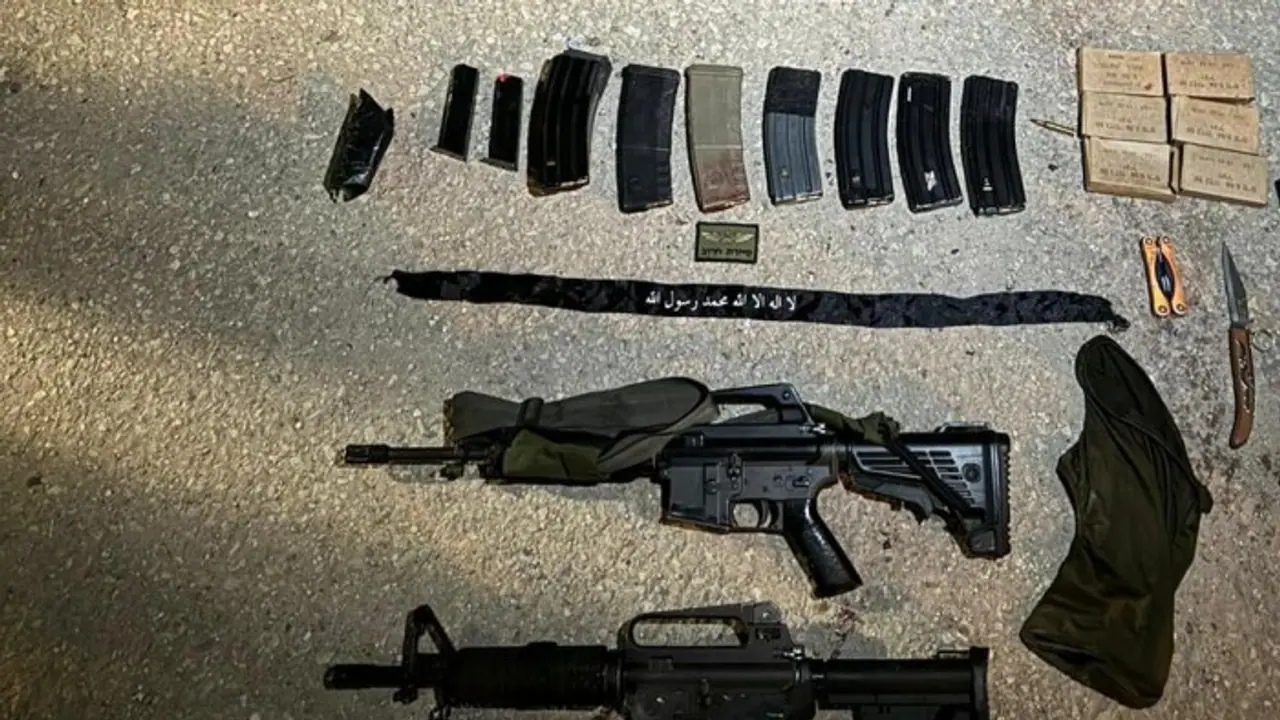Israel’s Defense Forces (IDF) announced the elimination of a top commander of the Palestinian Islamic Jihad (PIJ) in the Nur Shams refugee camp, located in the central West Bank.
In a significant military operation, Israel’s Defense Forces (IDF) announced the elimination of a top commander of the Palestinian Islamic Jihad (PIJ) in the Nur Shams refugee camp, located in the central West Bank. The airstrike, which took place on Thursday, targeted Muhammad Abdullah, the newly appointed leader of the Iran-backed terror group in the Tulkarem area, along with a second individual. The second fatality was later identified as Awad Omar from the nearby town of Bal’a, according to Palestinian sources.

Abdullah had assumed the leadership role following the death of his predecessor, Muhammad Jabber, in a gunbattle with Israeli forces in late August. The IDF stated that Abdullah was responsible for coordinating numerous attacks against Israeli forces, including the deployment of explosives. Israeli troops on the ground following the airstrike seized M-16 rifles, flak jackets, and other military gear from the two men, further linking them to PIJ activities.
The IDF described the operation as part of its ongoing campaign to neutralize key militants in the West Bank, an area that has seen escalating violence since the unprecedented October 2023 attack launched by Hamas against Israel. Palestinian sources, including the official news outlet Wafa, reported that Israeli forces took the bodies of the two men after the airstrike.
The West Bank has been a flashpoint of conflict between Israeli forces and Palestinian militants. Since the escalation of violence in October 2023, at least 705 Palestinians have been killed in Israeli military operations or clashes with settlers, according to the Ramallah-based health ministry. In the same period, at least 24 Israelis, including civilians and security personnel, have died in attacks by Palestinian militants or during military operations.
As tensions continue to flare in the West Bank, Israeli forces have also intensified their military offensive in Lebanon, particularly targeting Hezbollah positions. On Thursday evening, Israeli airstrikes struck two densely populated neighborhoods in Beirut, Ras al-Nabaa and Burj Abi Haidar, killing 22 people and injuring 117, according to Lebanon’s health ministry. The air raid also brought down an eight-story building, further adding to the devastation.
The Israeli offensive in Lebanon has been ongoing since October 1, with thousands of casualties reported over the past few weeks. Israel has targeted Hezbollah strongholds in an effort to root out what it describes as “terror targets,” delivering significant blows to the militant group. Among the casualties are Hezbollah’s chief, Hassan Nasrallah, and his successor, Hashem Saffiedine, marking a major blow to the group’s leadership.
Thursday’s airstrike also reportedly aimed to eliminate Wafiq Safa, a senior security official with Hezbollah. However, Hezbollah’s Al Manar TV reported that Safa was not in the building that was bombed.
The intensification of Israeli military actions has drawn international concern, particularly following an incident where Israeli forces fired on United Nations peacekeepers in southern Lebanon, injuring two of them. This attack on UN personnel has sparked outrage, including from Israel’s key ally, the United States. A spokesperson for the White House National Security Council expressed deep concern about the incident, calling for accountability.
In response to Israeli strikes, Hezbollah retaliated on Thursday by launching rockets into northern Israel, triggering air raid sirens. The IDF confirmed that several of these rockets were intercepted.
The conflict in Lebanon has continued to escalate, with Lebanon’s crisis response unit reporting that more than 2,169 people have been killed due to Israeli strikes since September. The IDF’s operations, which include both ground invasions and air raids, have targeted Hezbollah’s infrastructure and leadership in an effort to weaken the group’s influence in the region.
The situation remains volatile, with fears that the ongoing violence could spread further across the region, exacerbating the humanitarian crisis and straining already fragile diplomatic relations.
